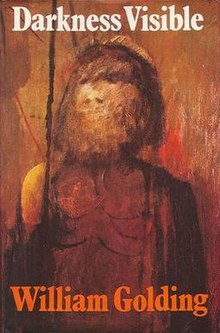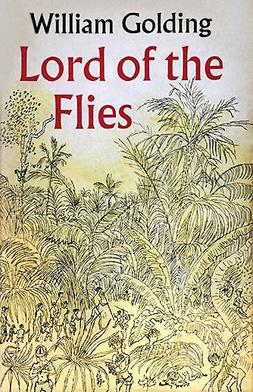
Lord of the Flies is the 1954 debut novel of British author William Golding. The plot concerns a group of British boys who are stranded on an uninhabited island and their disastrous attempts to govern themselves. The novel's themes include morality, leadership, and the tension between civility and chaos.

Sir William Gerald Golding was a British novelist, playwright, and poet. Best known for his debut novel Lord of the Flies (1954), he published another twelve volumes of fiction in his lifetime. In 1980, he was awarded the Booker Prize for Rites of Passage, the first novel in what became his sea trilogy, To the Ends of the Earth. He was awarded the 1983 Nobel Prize in Literature.
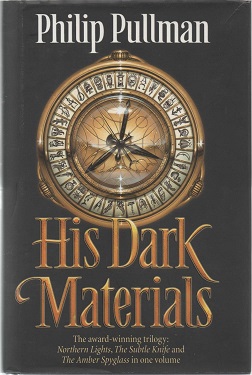
His Dark Materials is a trilogy of fantasy novels by Philip Pullman consisting of Northern Lights, The Subtle Knife (1997), and The Amber Spyglass (2000). It follows the coming of age of two children, Lyra Belacqua and Will Parry, as they wander through a series of parallel universes. The novels have won a number of awards, including the Carnegie Medal in 1995 for Northern Lights and the 2001 Whitbread Book of the Year for The Amber Spyglass. In 2003, the trilogy was ranked third on the BBC's The Big Read poll.

Vampire literature covers the spectrum of literary work concerned principally with the subject of vampires. The literary vampire first appeared in 18th-century poetry, before becoming one of the stock figures of gothic fiction with the publication of Polidori's The Vampyre (1819), which was inspired by the life and legend of Lord Byron. Later influential works include the penny dreadful Varney the Vampire (1847); Sheridan Le Fanu's tale of a lesbian vampire, Carmilla (1872), and the most well known: Bram Stoker's Dracula (1897). Some authors created a more "sympathetic vampire", with Varney being the first, and more recent examples such as Moto Hagio's series The Poe Clan (1972–1976) and Anne Rice's novel Interview with the Vampire (1976) proving influential.
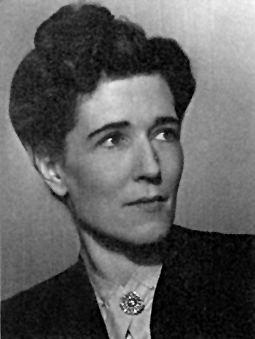
Georgette Heyer was an English novelist and short-story writer, in both the Regency romance and detective fiction genres. Her writing career began in 1921, when she turned a story conceived for her ailing younger brother into the novel The Black Moth. In 1925 Heyer married George Ronald Rougier, a mining engineer. The couple spent several years living in Tanganyika Territory and Macedonia before returning to England in 1929. After her novel These Old Shades became popular despite its release during the General Strike, Heyer determined that publicity was not necessary for good sales. For the rest of her life she refused to grant interviews, telling a friend: "My private life concerns no one but myself and my family."

Cranford is an episodic novel by English author Elizabeth Gaskell. It first appeared in instalments in the magazine Household Words, then was published with minor revisions as a book with the title Cranford in 1853. The work slowly became popular and from the start of the 20th century it saw a number of dramatic treatments for the stage, the radio and TV.
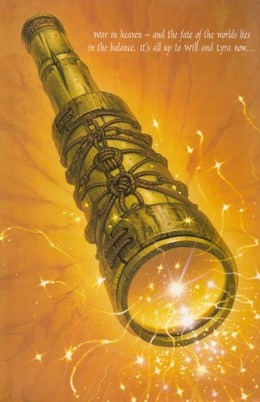
The Amber Spyglass is the third and final novel in the His Dark Materials trilogy by Philip Pullman. Published in 2000, it won the 2001 Whitbread Book of the Year award, the first children's novel to do so. It was named Children's Book of the Year at the 2001 British Book Awards, and was the first children's book to be longlisted for the Booker Prize.
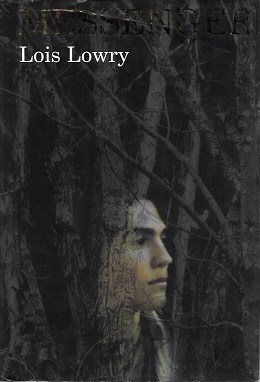
Messenger is a 2004 young adult dystopian novel by American author Lois Lowry, as is the third installment of The Giver Quartet, which began with the 1993 Newbery Medal-winning novel The Giver. The story takes place about six years after the events of The Giver, and the events of Gathering Blue, the preceding novel in the series. Characters from both of the previous books reappear in Messenger and give the novels a stronger continuity.

Never Let Me Go is a 2005 science fiction novel by the British author Kazuo Ishiguro. It was shortlisted for the 2005 Man Booker Prize, for the 2006 Arthur C. Clarke Award and for the 2005 National Book Critics Circle Award. Time magazine named it the best novel of 2005 and included the novel in its "100 Best English-language novels published since 1923—the beginning of TIME". It also received an ALA Alex Award in 2006. A film adaptation directed by Mark Romanek was released in 2010; a Japanese television drama aired in 2016.

Switch Bitch (1974) is a book of adult short stories by British writer Roald Dahl. Four stories, originally published in Playboy between 1965 and 1974, are collected. They are linked by themes of rape by deception: in each one, some major act of cunning, cruelty, or hedonism underpins the sexuality.
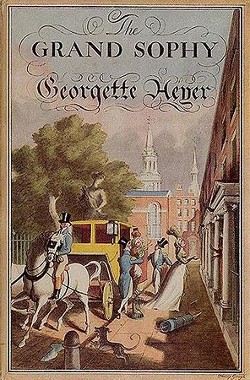
The Grand Sophy is a Regency romance novel by Georgette Heyer. It was first published in 1950 by Heinemann in the UK and Putnam in the U.S. Sales were brisk. Heinemann reported that in Australia it sold forty thousand copies in its first five months. There was also a Book Club edition in 1951.
The Unicorn Chronicles is a series of young adult fantasy novels by Bruce Coville set in a fantasy world, Luster, that lies parallel to our own. Within this realm exist all sorts of fantastical and mythological beasts, from the familiar unicorn to the strange, squirrel-like creature known as the Squijum.
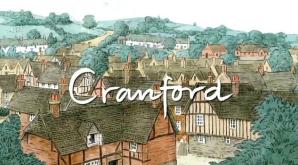
Cranford is a British television series directed by Simon Curtis and Steve Hudson. The teleplay by Heidi Thomas was adapted from three novellas by Elizabeth Gaskell published between 1849 and 1858: Cranford, My Lady Ludlow and Mr Harrison's Confessions. "The Last Generation in England" was also used as a source.

The Reef is a 1912 novel by American writer Edith Wharton. It was published by D. Appleton & Company. It concerns a romance between a widow and her former lover. The novel takes place in Paris and rural France, but primarily features American characters. While writing the novel, Edith Wharton visited England, Sicily, and Germany, among other locations. In a letter to Bernard Berenson in November 1912, Wharton expressed regret regarding her novel, calling it a “poor miserable lifeless lump”. She wrote, “Anyhow, remember it’s not me, though I thought it was when I was writing it—& that next time I’m going to do something worthwhile!!”
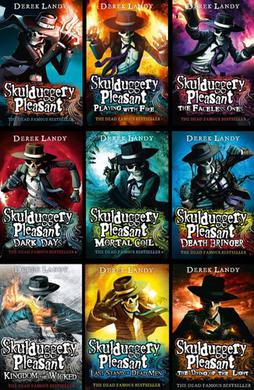
Skulduggery Pleasant is a series of dark fantasy novels written by Irish author Derek Landy. Tom Percival is the series' illustrator. The books revolve around the adventures of fledgling detective Valkyrie Cain and her mentor Skulduggery Pleasant, along with other friends and allies. The central story concerns Valkyrie's struggle to stop evil forces threatening the world and her internal struggle to resist the darkness within.
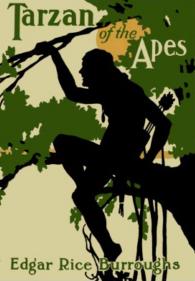
Tarzan is a series of 24 adventure novels written by Edgar Rice Burroughs (1875–1950) and published between 1912 and 1966, followed by several novels either co-written by Burroughs, or officially authorized by his estate. There are also two works written by Burroughs especially for children that are not considered part of the main series.

The Hunger Games is a series of young adult dystopian novels written by American author Suzanne Collins. The first three novels are part of a trilogy following teenage protagonist Katniss Everdeen, and the fourth book is a prequel set 64 years before the original.

Throne of Glass is a high fantasy novel series by American author Sarah J. Maas, beginning with the entry of the same name, released on August 2, 2012. The story follows the journey of Celaena Sardothien, a teenage assassin in a corrupt kingdom with a tyrannical ruler, the King of Adarlan. As the tale progresses, Celaena forms unexpected bonds and uncovers a conspiracy amidst her adventures. The series concluded with the eighth book in October 2018.

All the Light We Cannot See is a 2014 war novel by American author Anthony Doerr. The novel is set during World War II. It revolves around the characters Marie-Laure LeBlanc, a blind French girl who takes refuge in her great-uncle's house in Saint-Malo after Paris is invaded by Nazi Germany, and Werner Pfennig, a bright German boy who is accepted into a military school because of his skills in radio technology. The book alternates between paralleling chapters depicting Marie-Laure and Werner, framed with a nonlinear structure. The novel has a lyrical writing style, with critics noting extensive sensory details. The story has ethical themes, portraying the destructive nature of war and Doerr's fascination with science and nature.

The Camomile Lawn is a television adaptation of the 1984 book of the same name by Mary Wesley, produced by Glenn Wilhide and Sophie Belhetchet at ZED Ltd for Channel 4, directed by Peter Hall. It was adapted from Wesley's novel by Ken Taylor and first broadcast in 1992. It was nominated for the BAFTA TV Award for Best Drama Serial in 1993.
